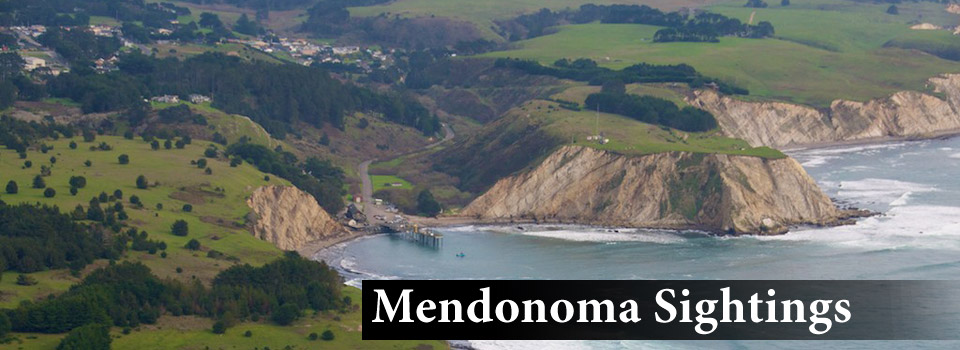Salal is blooming in sunny spots in many places on the Mendonoma Coast. It's white and pink blossoms are easy to overlook as this native wildflower grows low to the ground. To my surprise I learned that when the berries (which aren't really berries but swollen sepals) ripen, they are edible. They were a significant food source for Native peoples. And the leaves have medicinal qualities. All from this ubiquitous plant that I've been taking for granted...but no longer!
Mendonoma Sightings
Nature sightings on the Sonoma/Mendocino Coast


Bev
Reminds me of the time I made salal muffins (I love getting free food from the forest!). They were the blandest tasting muffins I had ever tasted...no discernable flavor from the salal berries. But they were free!
Frank Drouillard
They're in the same plant family as huckleberries (along with many other familiar plants along the coast):
http://books.google.com/books?id=qkcjj9OoixQC&pg=PA75&lpg=PA75&dq=salal+huckleberry+blueberry&source=bl&ots=JiayjgeePt&sig=DABu65oaKaXPva0JprFdd9usLE8&hl=en&ei=7o-1Tcv3J4-ksQOcpvD_Cw&sa=X&oi=book_result&ct=result&resnum=3&ved=0CEIQ6AEwAg#v=onepage&q&f=false
Jeanne Jackson
It just amazes me that I have so much to learn about what is around me. Bev, congrats for knowing they were edible - if bland! I read they are used in making jam and pies. The leaves are an appetite surpressent. And much more. Thanks for the link, Frank. I'll be checking it out!
Sharon Beals, photographer
And I am sure, if you look at the leaves, more than a few have been chewed on by insects. Food for insects=food for birds. My mantra these days.
Jeanne Jackson
A good mantra, Sharon! Native plants feed all of Mother Nature's creatures.